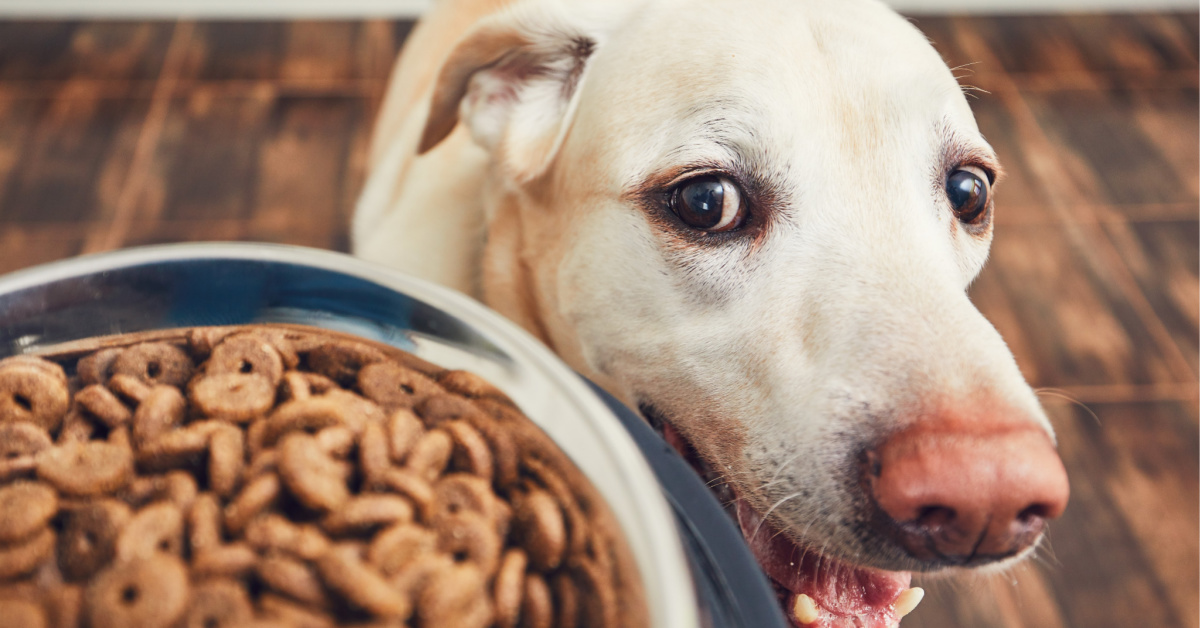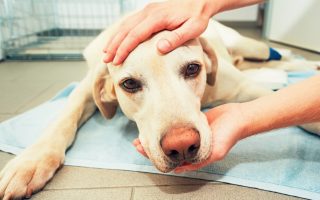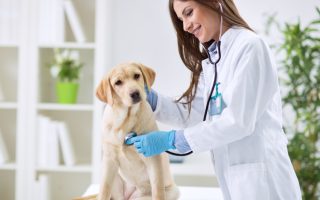Labrador retrievers are known for being incredibly energetic family pets. They require a lot of exercise and activity to stay healthy the way they are supposed to. For this reason, you need to give them a Labrador diet and nutrition that fits them and their active lifestyle.
Every Lab’s needs are different. Some Labs may need more than what another less energetic Lab needs. An older Labrador may need less food as their activity levels dwindle down. Today, food options for dogs are numerous, and there is bound to be a method of feeding that is perfect for your pet.
The most important thing in feeding Labradors, however, is nutrition. As a pet owner, you have to ensure that your Lab is getting all the right nutrients from the food that they are eating. This means providing them with a Labrador diet that is balanced in terms of amount and proportion.
Feeding your Labrador retriever the right amounts is not nearly enough. You also have to feed them the right proportions of the nutrients they need. Because nutritional needs in Labradors may vary, it can be difficult to determine the right proportions to feed your little Lab.
This article will discuss reasonable and ideal benchmarks that you can set for your Labrador’s nutritional needs.
The Best Labrador Diet and Nutrition
A Labrador has to be fed a well-balanced diet in order to thrive and be as energetic as they should. A Lab’s dietary requirement is as complex as that of a human’s. Because of this, feeding them their needed nutrients is essential to their healthy growth.
Here are some of the basic nutrients that your Lab will need in their diet:
Protein
So, how much protein does a Labrador need?
Well, proteins help with your little Labrador’s muscle growth. So, in general, proteins should be a large chunk of your Lab’s diet. A good sizable of 20%-25% protein in their diet is a good place to start.
Because Labrador retrievers are incredibly energetic and use their muscles a lot, they need proteins to assist in the proper development of their muscles. Proteins also help a Labrador feel fuller, as they take longer to digest. This feeling of fullness in your Lab is a good thing because they are known to be voracious eaters and could become obese.
Labrador Diet and Nutrition: Carbohydrates
Again, Labradors have very high energy. Consequently, their diet also has to support it.
Carbohydrates give Labs the energy that they need to keep exercising and playing around. The number of carbs that your Labrador needs will vary depending on their activity levels.
Labrador Diet and Nutrition: Fats
Fats, although they sound counterintuitive, are still a core dietary requirement that your Lab needs to be healthy. They provide your Lab with an additional source of energy. On top of that, fats also help build nervous tissue and will assist your dog with inflammation in times when they need to recuperate from injury.
Some essential fatty acids also help keep a Labrador’s coat shiny and healthy. We should stress, though, that fats need to be provided in moderation. After all, moderation and proportion are crucial in keeping your Labrador healthy.
Labrador Diet and Nutrition: Vitamins & Minerals
Vitamins and minerals are crucial in the healthy development and growth of your Labrador. They help with proper bone growth and assist with your dog’s metabolism.
If you’re looking for the best vitamins for Labs, this article from WebMD may help.
Water
The purpose of water in Labrador health actually goes deeper than just survival.
For starters, water helps regulate body temperature. It also helps in distributing nutrients throughout the body. Since access to water is a necessity for your dog, your Labrador retriever should always have a bowl with water in it.
How Much to Feed a Labrador: Calorie Needs
For pet owners wondering how many calories their dog needs, an online calculator like the one you can see here is a good place to start.
Generally, an adult Lab will have to consume about 1500 calories, give or take. Their caloric intake depends mostly on their activity levels. An older Lab, for example, will consume less calories than the amount recommended by a nutrition calculator for dog food since they move around less and need less energy.
A Labrador that cannot move properly will also probably need a lesser amount than average due to mobility issues. On the other hand, pregnant or nursing Labradors will need more calories than an average active adult Lab.
The point here is that the food that your little Lab consumes will vary depending on their weight, size, age, health, activity levels, and energy levels, just to name a few. The best thing to do regarding caloric requirements in Labradors is to consult your vet and ask them how many calories your dog should eat in a day.
Your cooperation and observation on this matter are also very important. If you notice that your Lab cannot eat all the food that you are putting out for them, then you might need to feed them less next time and vice versa.
Take note, though, that different types of food contain varied calorie levels. Dry food will have enough calories packed into them, while wet food will have more. So, while going by amounts is important, so is knowing the calorie content of the type of food you are feeding your dog. Learn more about it by visiting our post on feeding guidelines for Labs.
Treats are a different topic altogether. Labradors are prone to becoming obese, so pet owners need to take action to mitigate that as much as possible. Treats contribute to the overall calorie intake of your dog, so make sure to deduct whatever treats you give them during mealtimes.
Our blog post on the subject may help you.
The Best Foods for Your Labrador
There are a lot of Labrador diets available on the market today. In fact, as a Lab owner, you can feed them dry food, wet food, or even some home-cooked meals.
The method you choose for feeding your Labrador retriever will depend entirely on your lifestyle. Not everyone has the time and resources to cook their pet’s meals. Apart from the fact that it can get expensive, knowing the exact proportions to cook to keep your dog healthy will take a lot of learning. Just make sure to avoid these foods for your Labrador.
It is not easy to determine what best ingredients to cook and at what amounts. For this reason, most pet owners resort to commercially made food.
Commercially made food is not necessarily a bad thing. In fact, it can be great for your Labrador as long as it is part of your Labrador’s basic diet and nutrition.
However, you must always check the packaging of the food you buy to ensure that it gives your Lab the nutrients they need. This way, you are sure that the food you buy is specifically tailored to suit the needs of your Lab and their energy levels.
Most pet owners stray from this advice, but many dog owners find it appealing to cook their own dog food. If you are one of them, here are a couple of home-cooked meals that your Labrador would benefit from:
- Human-quality meat, such as poultry, meat, or fish.
- Dairy, such as low-fat yogurt and eggs.
- Food that contains complex carbohydrates, like sweet potato and brown rice. (Pro tip: avoid corn since it can be difficult to digest)
- Vegetables like carrots, green beans, and cauliflower. Although dogs are carnivores, fruits and vegetables should still make up a healthy chunk of their diet.
These are just a few of the best foods you can give to your Labrador. There are many more that you can look into to your advantage.
Avoid Overfeeding Your Lab
As a Lab owner, we understand that you want only the best foods for your pet. However, do take note of feeding your Lab with too much food since they tend to eat a lot and do not know when to stop.
Studies show that obesity is the leading illness in Labradors. Obesity in Labradors can lead to a slew of other diseases and illnesses like heart disease or diabetes. This is why overfeeding Labradors can be dangerous.
Careful monitoring of your Labrador’s food intake is necessary to guarantee that they remain healthy and strong. Remember, obesity is also a form of malnutrition. Maintaining your Lab’s food intake means cutting back on treats and other extras that you may be fond of putting in their food.
Conclusion
Labrador diet and nutrition is a complex topic to dive into at first. But with adequate research, you can give your dog the level of care and nutrition that they need to grow strong and healthy.
While everything written in this article was well-researched, there is no replacement for the personal advice of your veterinarian. We recommend that you approach them since they will know what are the best foods for your Labrador, given their medical history and personality.
Try not to get overwhelmed by the sheer amount of things to consider. Eventually, you will find the perfect food that will give your Labrador the best diet and nutrition that is suited for them and their personal needs.







